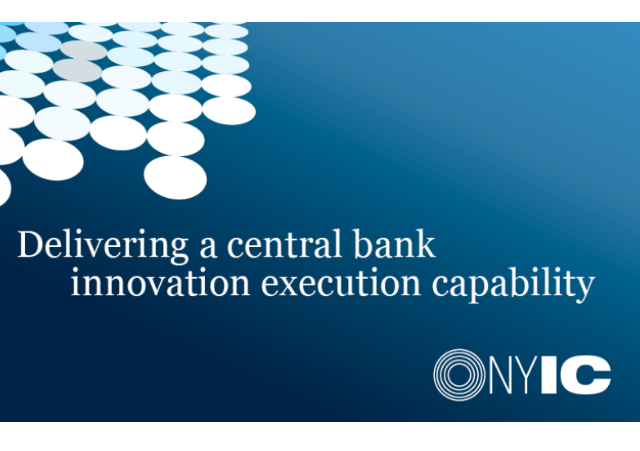
The New York Innovation Center (NYIC), a joint project of US Fed and BIS, is launching a proof-of-concept project along with members of the private sector to explore the feasibility of an interoperable network of digital central bank liabilities and commercial bank digital money using distributed ledger technology.
Participants include BNY Mellon, Citi, HSBC, Mastercard, PNC Bank, TD Bank, Truist, U.S. Bank and Wells Fargo. All of the selected companies are either members or cooperate with the private sector collaboration project R3/Corda. Goldman Sachs and JP Morgan Chase, which were among the founders of R3 but had left in the early years, are not included in this team. The technology is being provided by the technical members of R3, SETL and Digital Asset that work on Amazon Web Services. Swift, the global financial messaging service provider, is also participating in the initiative to support interoperability across the international financial ecosystem. Legal services are being provided by Sullivan & Cromwell LLP and Deloitte will be providing advisory services.
The press release describes the project as a pilot of the Regulated Liability Network (RLN), a concept that also emerged from the R3/Corda works.
"The [Regulated Liability Network] proposal is that regulated institutions – including central banks, commercial banks, and e-money providers – tokenize their liabilities. These liabilities have one common characteristic: they are promises to pay the customer on demand at par value in national currency units. This characteristic means that the token would work with, rather than replace, existing legal instruments. RLN tokens are simply novel representations of existing deposits. We go into more detail about this design proposal below".
The project will be conducted in a test environment and only use simulated data. During it, participants plan to build a prototype for a distributed ledger-based network and test the feasibility of payments between financial institutions using tokenized regulated liabilities on the RLN.
According to information released to Businesswire, the tokens will be fully fungible and USD pegged. The project will focus on not only the technological but also the regulatory aspects of the designed framework.
After the proof-of-concept, which is expected to be completed in January 2023, a report summarizing the findings from design and testing will be released. We marked our observation calendar for it.

